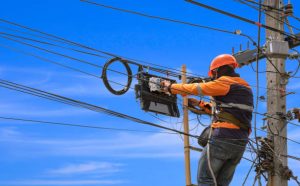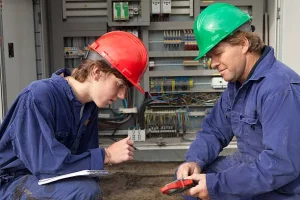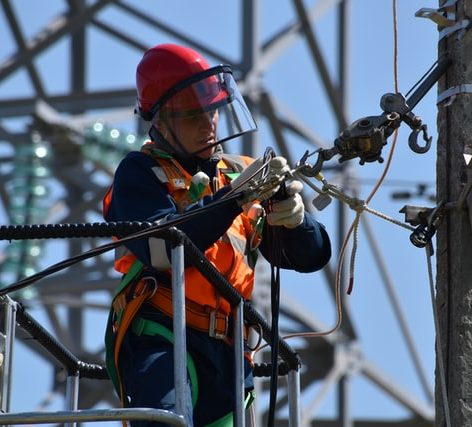Not all electricians are created equal, but it can be hard to decipher the differences. The type and location of electrical systems determine which electrician you require. Understanding the differences between an industrial electrician and a construction electrician helps future apprentices decide which avenue is correct for their future.
We’ll discuss both industrial electricians and construction electricians. We’ll decipher their similarities and differences and dive into commercial electricians and the existing varieties. By the end, you will be well-versed in the types of electricians and what they offer.
What Are Electricians?
Electricians are tradespeople who specialize in repairing electrical equipment, installing electrical systems, and maintaining electrical systems in residential and commercial locations. There are levels of electricians in Canada, from apprentice to journeyman to master electrician, depending on your certification levels and work experience. Electricians are standard at commercial and residential construction sites to install and repair electrical systems.
Industrial Electricians
Industrial electricians are tradespeople who repair, install, and maintain electrical systems within an industrial setting like a power plant or warehouse facility. Maintaining and repairing wiring work for equipment like transformers or motors is their main area of expertise.
Job requirements for an industrial electrician vary between employers. Some require only a high school diploma, while others insist on an associate’s degree. In addition, four years of experience in an apprenticeship program and a 442a certificate is required.
Unlike commercial electricians that work in residences, commercial buildings, or outside, industrial electricians work in industrial facilities like power plants, warehouses, and mines. They may have more specialized expertise than commercial electricians due to the type of control systems and equipment they maintain.
Industrial electricians have many skills for understanding electrical equipment. They must be able to read and interpret blueprints. Because they work in factories and other manufacturing industry settings, high-voltage situations are everyday occurrences. They must understand the safety protocols associated with high-voltage equipment to avoid electrocution. Being able to think on their feet and problem-solving to identify problems is a must.
Construction Electricians
A construction electrician works in residential and commercial settings to install, repair, and maintain electrical systems. They must understand both regionals and building electrical codes to be able to wire buildings safely and precisely.
The job requirements for a construction electrician include installing wiring and lighting for both residential and commercial buildings. They work at construction sites running electrical cables from buildings to power sources. Construction electricians tend to work more irregular hours due to construction deadlines.
Understanding the principles of electrical equipment and building codes is essential for construction electricians. Since they work installing lighting and wiring for residences and buildings, they usually work with something other than exceptionally high-voltage electrical equipment like industrial electricians. They must think outside the box and problem-solve at a moment’s notice.
A residential electrician works in homes and apartment buildings. A commercial electrician repairs electrical systems at retail establishments. They both perform similar duties, like installing wiring and lighting for new construction.
A construction electrician must hold a high school diploma and at least three years of experience in an apprenticeship program and the 309a certificate. Some qualifications may vary depending on whether you want to be a commercial electrician specializing in business buildings vs. a residential electrician working in homes.
Construction electricians work in residences and businesses and are often found at construction sites. They work outside more than industrial engineers running cables from buildings to power sources.
Differences Between Industrial and Construction Electricians
Now that we described both types of electricians let’s consider their differences.
- Industrial electricians work with high-voltage equipment in industrial settings like power plants or warehouses, while construction electricians work outside at construction sites at residences or commercial buildings.
- Construction electricians install wiring and lighting for new buildings by running cables to power sources. Industrial electricians work with wiring on high-voltage equipment like circuit boards and motors. They may install wiring but usually on more complex machinery and systems.
- Industrial electricians must understand more safety protocols due to the high-voltage equipment they maintain. Construction electricians focus more on building and residential codes.
Let’s Talk Money
Regarding salaries, an industrial electrician usually makes more money than a construction electrician. The average salary for an industrial electrician in Canada is slightly over $65,000 annually, while the average salary for a construction electrician is closer to $54,000 yearly. The hourly rate for an industrial electrician works out to $34/hour. A construction electrician makes closer to $27/hour.
These salaries are averages, and pay fluctuates based on experience. Apprentice electricians and journeymen may make significantly less than master electricians. Some master electricians may hit over $100,000 based on the years they have worked and the particular companies that employ them.




